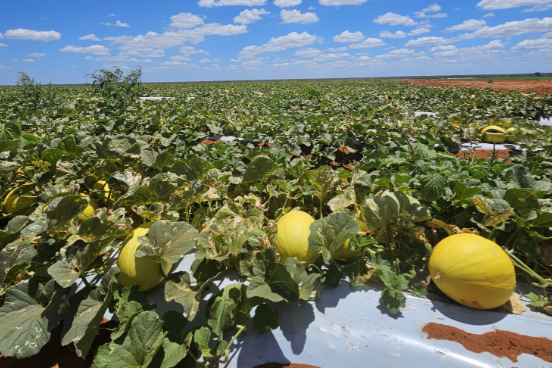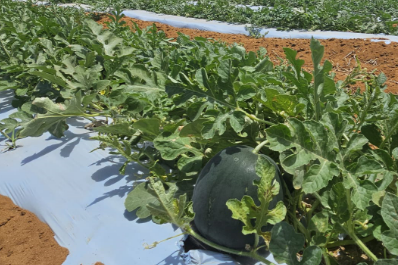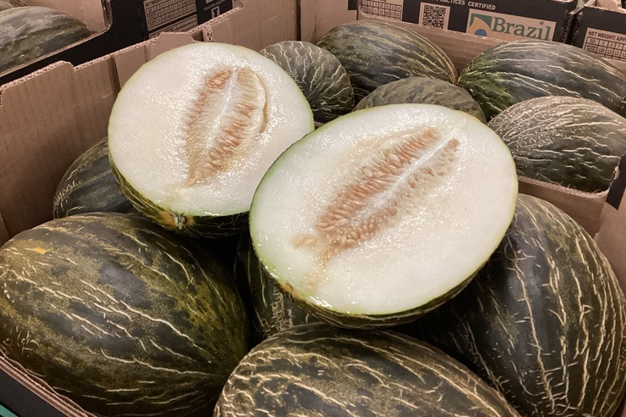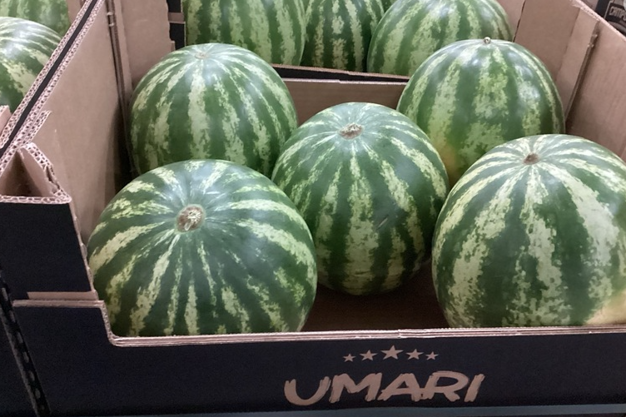The Brazilian melon season had a strong start in Europe this year. "The season began with a relatively empty market since the Spanish season ended quite early. Brazil also experienced some issues with cold nights, which slowed the growth of Galia and Cantaloupe melons. However, this resulted in favorable market prices," says Bertus Schipper from Zoutewelle.

"For Galia and Cantaloupe, prices even reached 15 euros for 5 kilos, which is excellent. The watermelon market has also been performing well, with prices initially at 1.20 euros per kilo, now adjusted to around 1 euro. Yellow melon sales have been slightly more challenging, with prices dropping to about 7 euros after a good start.

But if three out of the five varieties we offer—Galia, Cantaloupe, watermelon, yellow melon, and Piel de Sapo—are doing well, we certainly can't complain," Bertus notes.
"Despite the popularity of varieties like seedless mini-watermelons, we stick to these five types, which we've sold for years, and it works very well. In previous years, selling Brazilian Piel de Sapo melons was sometimes difficult if Spanish supplies were still available, but we see this variety gaining popularity. Previously, Brazilian Piel de Sapo melons were mainly sent to southern countries like Portugal and Spain. However, in recent years, demand has also grown in the Netherlands, the UK, and Germany."

"The mild weather in Europe has certainly supported demand, though it isn't always predictable. Even with temperatures at -5 degrees Celsius, high prices have been reached in recent years, depending on supply. The key is that Europe isn't oversupplied. We've had some tougher years for Brazilian melons, but last year was good, and this season's start also looks promising."

For more information:
Bertus Schipper
Zoutewelle
Handelsweg 140
2988 DC Ridderkerk
Tel: +31 (0)180 642364
[email protected]
www.zoutewelle.com










